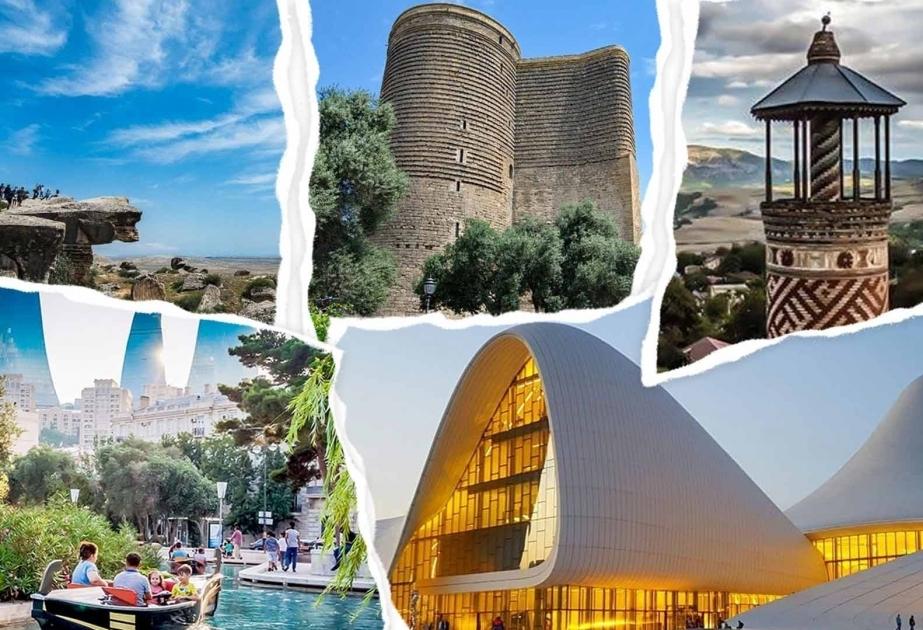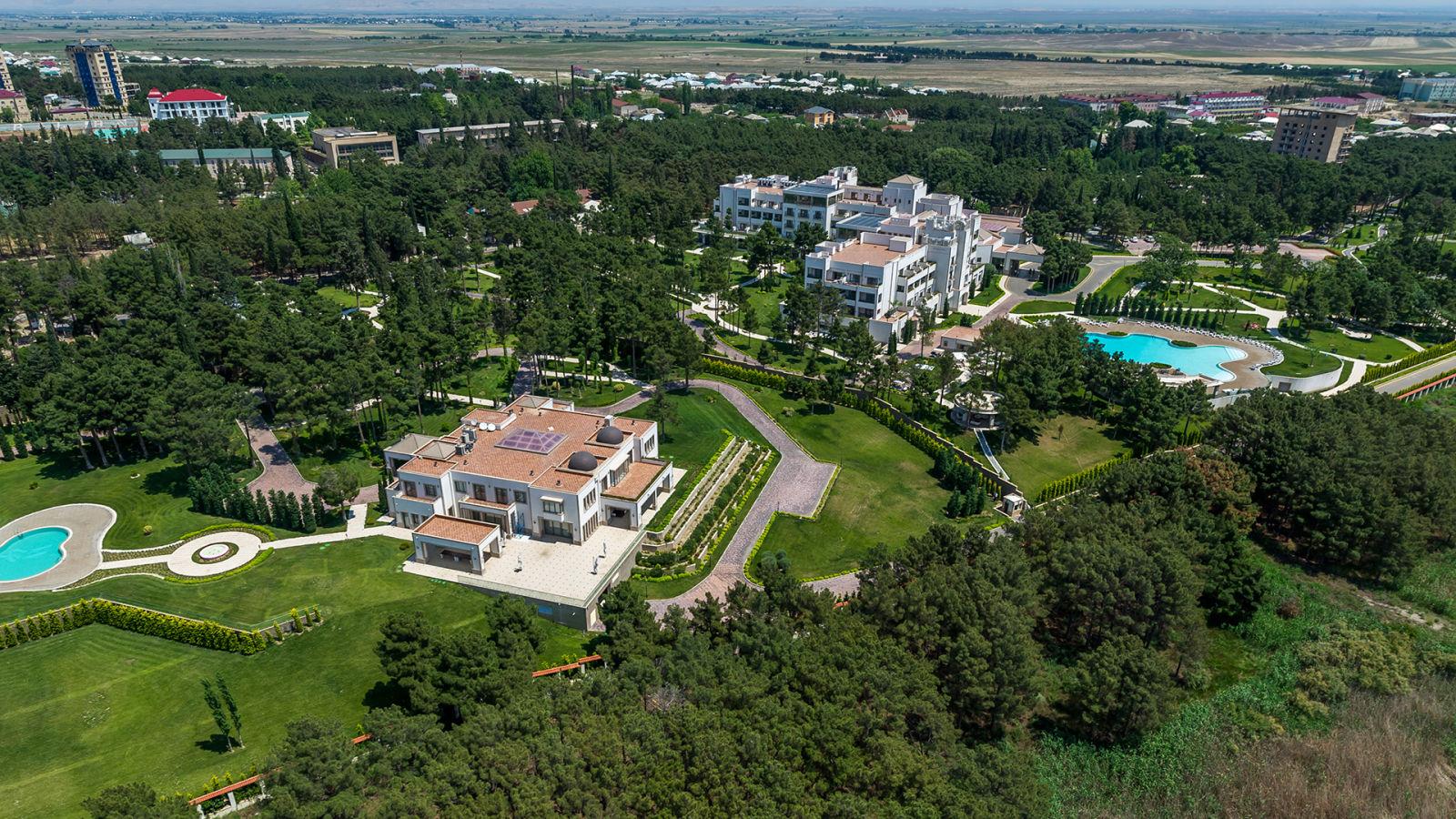Tourism in Azerbaijan: Can staff shortages be overcome? Review by Caliber.Az
For a relatively short period of time Azerbaijan has managed to form a relatively developed tourism industry. Our country is one of the leaders of the Caspian region in terms of the number of five-star hotels of famous brands, high-class recreation areas and restaurants, mountain and balneological resorts, as well as the number of modern airports in the regions.
Nevertheless, optimisation of the process of training qualified personnel for the recreation industry and exchange of best practices in this sphere is still in demand in Azerbaijan. The prospects of cooperation with the countries of the region in the field of tourism education were discussed during "The first meeting of tourism-specialized educational institutions from Economic Cooperation Organization (ECO)", which started a day ago in Baku.
Azerbaijan's tourism sector and the closely related air passenger transport industry suffered significantly during the COVID-2019 pandemic. Recovery from the crisis proved to be very difficult: according to the indicators of incoming tourism in 2022 managed to achieve a two-fold growth, and in January-October 2023, more than 1.723 million foreigners from 186 countries arrived in Azerbaijan, which is 30.3 per cent more than in the first ten months of last year. However, after four years, the republic has still not managed to reach the record figures of pre-crisis 2019, when 3.2 million foreign tourists entered the country.
Increasing tourism is identified as a key objective for the country, and this vector is seen as an important export destination for the non-oil sector, a source of foreign exchange earnings in the long term. Encouraging domestic tourism is seen as an equally important task. Both directions are intended to contribute to the solution of the tasks formulated in the "Socio-Economic Development Strategy of Azerbaijan for 2022-2026" to increase the share of tourism in the non-oil GDP of the country by 1.5 times compared to 2019, while the share of revenues from the industry in the next four years should increase by an additional 20 per cent. According to the calculations of the State Tourism Agency of Azerbaijan, in the next four years, the incoming tourist flow in the country is planned to reach 4 million people, and the number of local holidaymakers within the country up to 6 million people.

To achieve the set goals in the post-pandemic period, the State Tourism Agency, the Tourism Board and the country’s other relevant departments are taking steps to open new flights to Central Asia and Indochina, promote local tourist products at tourism exhibitions and forums, develop promising destinations - ecological, rural, wine, mountain, balneological recreation. The development of tourism potential of the Karabakh region is on the way, where the design and construction of hotels, recreation areas, and balneological resorts have already started in several places.
At the same time, serious steps are being taken to accelerate the process of certification and awarding stars to hotels and hotel-type facilities. And, importantly, work is underway to improve the qualifications of industry personnel, to train new specialists taking into account modern trends, to implement the best international practices in specialised educational institutions taking into account the domestic realities and the future need for professionals for new destinations in the liberated territories.
Achievements and prospects for the development of higher education and hotel staff training were discussed on December 4 in Baku during the two-day "The first meeting of tourism-specialized educational institutions from Economic Cooperation Organization (ECO)". The forum is attended by representatives of relevant government agencies and tourism education institutions from ECO member countries, including Türkiye, Iran, Pakistan, Kazakhstan, Uzbekistan, Turkmenistan, Kyrgyzstan, Tajikistan, as well as the United Nations World Tourism Organisation (UNWTO).
The event will include panel discussions on "State Coordination, Education and Industry: Best Practices in Tourism Education", "Curriculum Development: Improving Tourism Education for Future Demand", "Innovation and Technology: New Trends in Tourism Education", and presentations of tourism universities. The second day of the meeting will feature a round table on the topic of expanding partnership relations of ECO countries in the field of tourism education and creation of a unified network of specialised educational institutions. The "Baku Declaration", which provides for holding such meetings on a permanent basis will be adopted.
“Human resources and quality human resources are among the most important factors influencing the development of tourism, and the key goal of profile education in the country is to provide human capital with the necessary knowledge and skills for all sub-sectors of tourism,” Chairman of the State Tourism Agency, Fuad Naghiyev said as he addressed the forum. “Currently, tens of thousands of people work in the tourism sector in Azerbaijan, but given the constant development of the industry, there is always a demand for highly qualified personnel in the tourism sector".
The fact that the head of state recently signed an Order on the establishment of the Garabagh University, which will also provide training in specialities regarding tourism, testifies to the fact that professional personnel in the field of tourism are in demand in Azerbaijan. In general, as Nagiyev noted, 17 educational institutions in our country provide training in tourism speciality, including three profile structures functioning under the State Agency. In particular, we are talking about the Azerbaijan University of Tourism and Management (AUTM), which was transformed into a public legal entity in August last year, as well as a college and vocational school operating under the State Agency.
However, despite the relatively large number of educational structures that train future professionals for the recreation sector, most of them are limited to teaching theoretical knowledge. In terms of modern know-how and practical experience, graduates have to gain experience and knowledge in local hotels and travel agencies, which is not possible for everyone. Difficulties are also related to the lack of foreign teachers with international qualifications in most local universities, and still poor accessibility for our students to foreign practice in the leading recreational centres of the world. A pleasant exception to this background is the Azerbaijan University of Tourism and Management, which signed a cooperation agreement with the Austrian IMC Krems University of Applied Sciences back in 2007. Austrian specialists introduced an international training program at the university, and Azerbaijani students of AUTM underwent internships and training in Austria.
"According to the practice of Türkiye and many European countries, it is necessary to give preference to subjects that meet modern requirements in tourism education, teachers should participate in trainings held in hotels, it is necessary to improve their qualification", said Novruz Guliyev, Head of the Hotel and Restaurant Business Department of AUTM, during a recent scientific-practical seminar. “Today, one of the key problems in hotels is the lack of understanding of the speciality and ignorance of the service sector: therefore, to train competent specialists, it is necessary to establish a coordinated work of educational institutions with the enterprises of the recreational sector.”
Participating in an industry seminar, Executive Director of the New Baku Hotel Jeyhun Ashurov, also noted that it is only during internships that students apply and improve the theoretical knowledge gained at universities. However, despite the shortage of qualified personnel, prestigious hotels of the republic mostly do not take the initiative in the issue of internship of young specialists, transferring experience and modern knowledge to them.
Azerbaijani tourism faculties and colleges will have to cope with the problem of the gap between theoretical knowledge and practical experience, including using the experience of Türkiye and other ECO countries. At the same time, it is necessary to solve difficulties with employment of young graduates.

The crises of 2014-2017, as well as the negative impact of the pandemic period, have caused tangible damage to the employability and career start of students of specialised educational institutions. In the first case, due to the devaluation of the manat, the outdoor segment collapsed, many dozens of travel agencies designed to organise foreign trips closed down, and a few years later, the quarantine measures of 2020-2021 collapsed the sector, putting thousands of industry specialists out of work.
Today, the tourism boom is generating new jobs, but the seasonal factor remains the most difficult problem hindering sustainable demand in the domestic market. While large five-four-star hotels in general have year-round occupancy, the peak activity of a significant part of recreational facilities in the regions is limited to 3-5 months of the holiday season. Accordingly, it is unprofitable for local hoteliers to maintain a large number of qualified staff (as in Türkiye) and pay them high salaries during the long off-season period.
As a result, there is a huge staff turnover, many young professionals in the recreation sector prefer to look for work in Türkiye, UAE, Qatar, Eastern Europe, etc. Due to the seasonal factor, regional recreational facilities are still experiencing a shortage of qualified, certified personnel - cooks, waiters, hotel attendants, guides, and other staff, which is the main reason for the low level of service. Over a decade ago, when the Ministry of Tourism was still in office, a commission was established to certify tour guides, and unified cards were introduced for tour guides, who were required to know the history of the region and cultural monuments, as well as foreign languages.
However, in other areas of the tourism sector the work on certification and attestation of personnel was not so dynamic in the previous years. Gradual overcoming of the aforementioned problems will help the personnel rehabilitation of the tourism industry, and due to the implementation of best foreign practices in the educational sphere, the number of young qualified graduates of local universities will increase in hotels and recreation areas.








